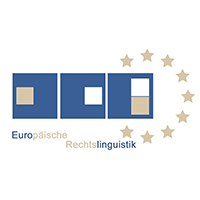EU-Rechtsetzungslabor | LegislEUlab 2022
In September 2022, the European Legal Linguistics team of the University of Cologne was proud to welcome six students from Cologne and six students from different EU member states to the 4th Cologne Summer School for European Legal Linguistics. For the 3rd time, the CSS-ERL simulated the EU legislative procedure in the “LegislEUlab”. After a productive and fruitful online preparatory phase from June to August 2022, the attendance phase of this year’s CSS-ERL was held on the University premises from September 8 to 14, 2022. We would like to express our deepest gratitude to the “Kölner Gymnasial- und Stiftungsfonds” and the Summer Schools project of the University of Cologne who made the implementation of the programme possible by providing financial support.
As in the past years, the CSS-ERL dealt with an ongoing EU legislative procedure. Due to its increasing importance in both the political and social discourse, this year’s topic was the Commission’s proposal for a directive to strengthen the application of the principle of equal pay for equal work or work of equal value between men and women through pay transparency and enforcement mechanisms (“Equal Pay Directive”; 2021/0050 (COD)). After an introduction to the EU legislative procedure and the methodology of European legal linguistics, the participants analysed the articles controversial between the Commission, the Council and the Parliament in project groups and drafted their own text proposals based on the material provided to them and further research by themselves. Particular attention was paid to the comparison of versions of the Equal Pay Directive in all 24 official languages of the EU: terminology, the distinction between national and supranational legal concepts, the impact of various syntactic constructions on the interpretation of text passages, and divergences between the language versions were analysed. Comprehensive results were possible because of the mother tongues and foreign languages the participants had command of. “I particularly liked the mixture of participants from different countries and the opportunity to interact with them”, said one student and another one pointed out: “I liked the possibility to work across the disciplines and to meet and work with people coming from different EU Member States”. Although the students had either a purely legal or a purely linguistic background, they were able to complement each other during the work phases. “At times I felt a bit overwhelmed by the law-related content (as it is not my expertise) but I found a lot of topics I want to dive in further now”, summed up a participant. Besides the interdisciplinary approach to the Equal Pay Directive, insightful presentations of professionals of the European Union and of members of the European Parliament on their work were certainly highlights of the CSS-ERL.
The results of the summer school were published in 2023 as Kölner Publikationsreihe Europäische Rechtslinguistik (KPER) Vol. 3:
Burr, Isolde / Dillmann, Ruben / Heinemann, Ellen / Mattissen, Johanna (eds.) 2023: LEGISLEULAB der Europäischen Rechtslinguistik 2022 / LEGISLEULAB for European Legal Linguistics 2022. Köln: Universität zu Köln.
If you are interested in a copy, please contact us at css-erl [at] uni-koeln.de .
The project work on the premises of the University of Cologne was crowned by a varied cultural and social programme in Cologne and Bonn, enabling people to get to know each other and forge new friendships. Even though the weather did not always cooperate, it was possible to offer extensive guided tours of Cologne and Bonn as well as having dinners together. Of course, the obligatory visit to the “Haus der Geschichte” in Bonn could not be missed. The already traditional and convivial dinner in Prof. Burr-Haase’s garden saw a lively party enjoying the Indian summer night with stimulating conversations, delicious lasagna and cool wine. “I loved having dinner together”, told a student. “I felt especially honoured to be invited to Mrs. Burr-Haase’s home”, emphasised another one.
After submitting personal essays, the students received a certificate for their successful participation in an hybrid award ceremony in November.
We will be happy to offer the Summer School of European Legal Linguistics again next year on the basis of our successful experiences with the EU law-making laboratory. Of course, we are looking forward to getting to know whether and in what wording the EU legislative bodies will adopt the Equal Pay Directive.
